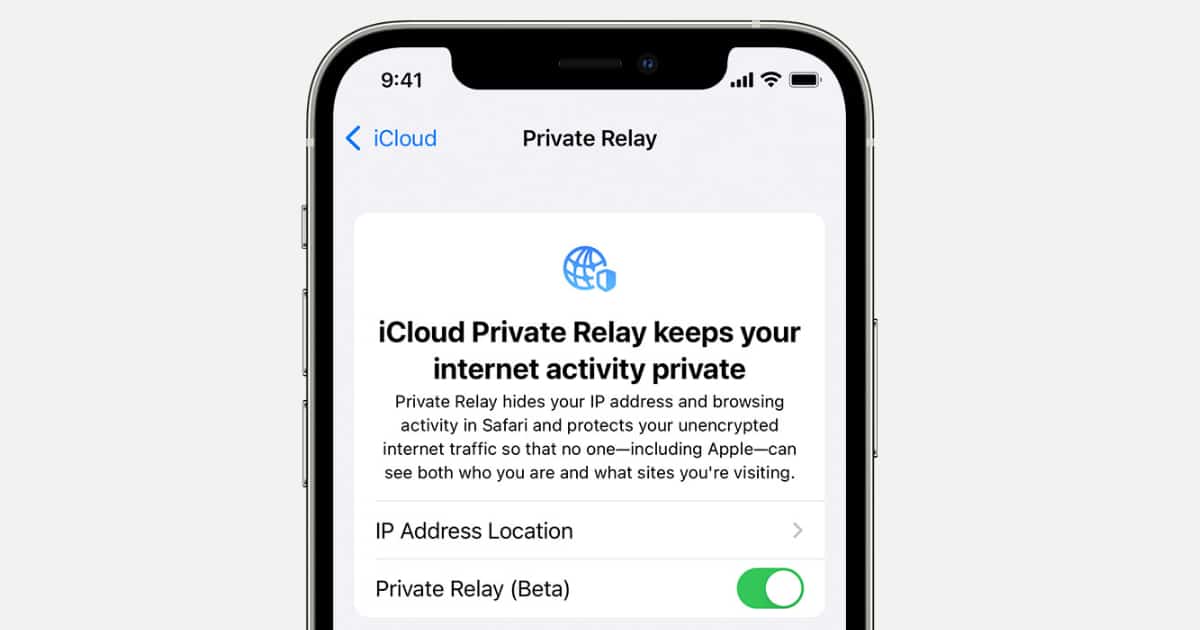Apple’s iCloud Private Relay feature has VPN-like capabilities which ensure a user’s web-browsing traffic is encrypted and sent through a relay to hide their exact location, IP, or the contents of their browsing traffic. According to a new report, a number of European cellular carriers want it banned because it allegedly infringes upon EU “digital sovereignty.”

EU carriers say iCloud Private Relay prevents them from managing their networks
iCloud Private Relay, announced with iOS 15, prevents users’ data from landing in the wrong hands. The feature does that by first sending web traffic to a server maintained by Apple where it is stripped of a piece of information called an IP address. After that, the tech giant sends the traffic to a second server maintained by a third-party operator who assigns the user a temporary IP address and sends the traffic onward to its destination website. This process hides the user’s identity and the destination website from Apple.
Despite being a VPN, European carriers including Vodafone, Telefonica, Orange, and T-Mobile say that the feature “will impair others to innovate and compete in downstream digital markets and may negatively impact operators’ ability to efficiently manage telecommunication networks.”
Less than two months after iCloud Private Relay was announced, the European networks sent a joint letter (via The Telegraph) to the European Commission voicing their concerns over the feature:
A joint letter signed by Vodafone, Telefonica, Orange and T-Mobile said: “Private relay purports to enhance users’ privacy when connecting to and browsing the internet by encrypting and redirecting traffic … thereby cutting off other networks and servers from accessing vital network data and metadata, including those operators in charge of the connectivity.
The letter claimed that iCloud Private Relay will have “significant consequences in terms of undermining European digital sovereignty.” The operators also requested the European Commission to label the Cupertino tech giant as a “digital gatekeeper” under the EU Digital Markets Act. As per the report, the label “has the potential to stop services such as Private Relay.”
iCloud Private Relay is still in beta for users on iOS 15, iPadOS 15, and macOS Monterey, and it is unclear when the tech giant plans to release it to the general public. However, if the company is classified as a “digital gatekeeper” under the EU’s Digital Markets Act, it could potentially be prevented from implementing the feature in its operating system. However, the act has yet to be approved by European governments.
iCloud Private Relay is already unavailable in Uganda, the Philippines, Saudi Arabia, South Africa, Colombia, Egypt, Kazakhstan, China, Belarus, Russia and, Turkmenistan.